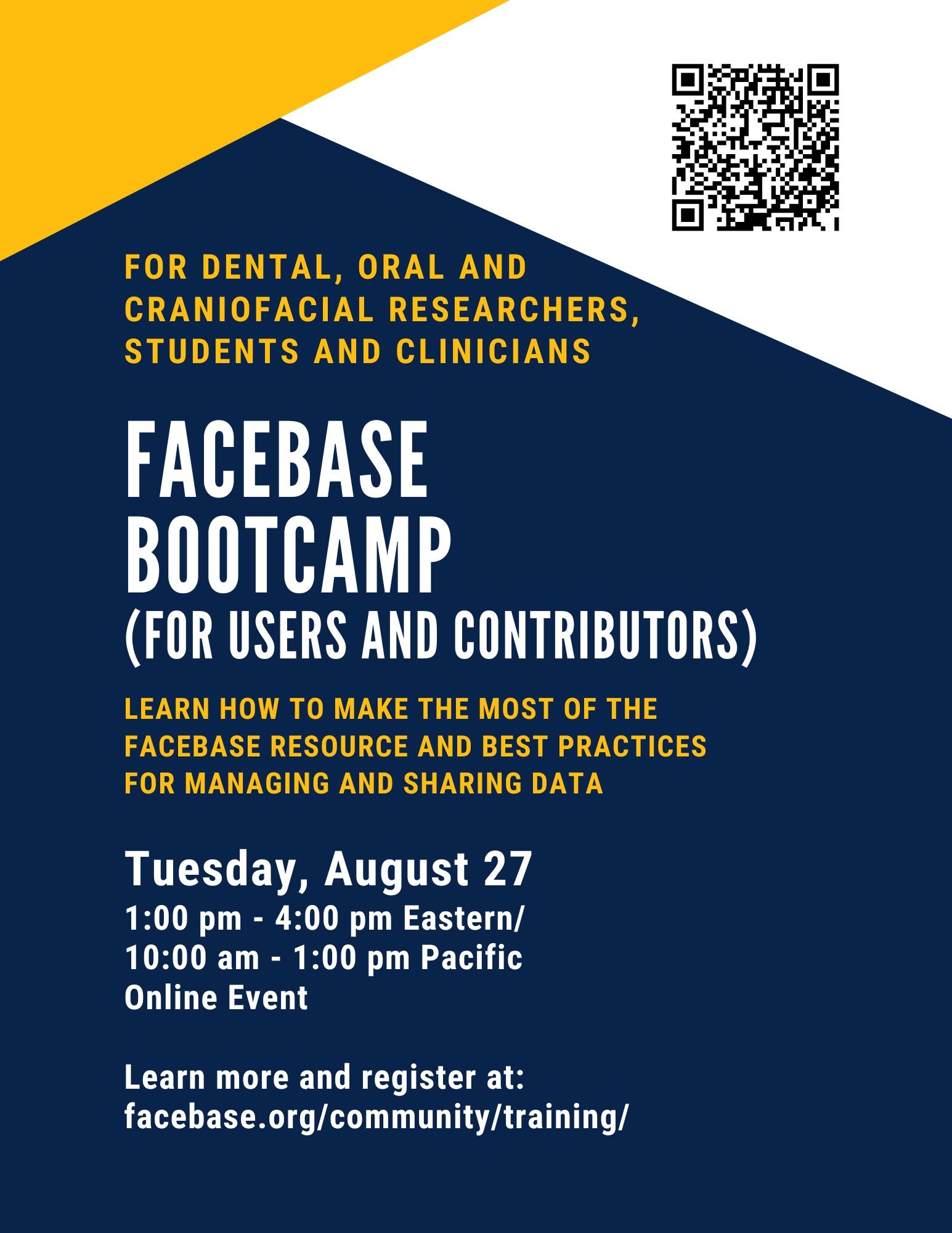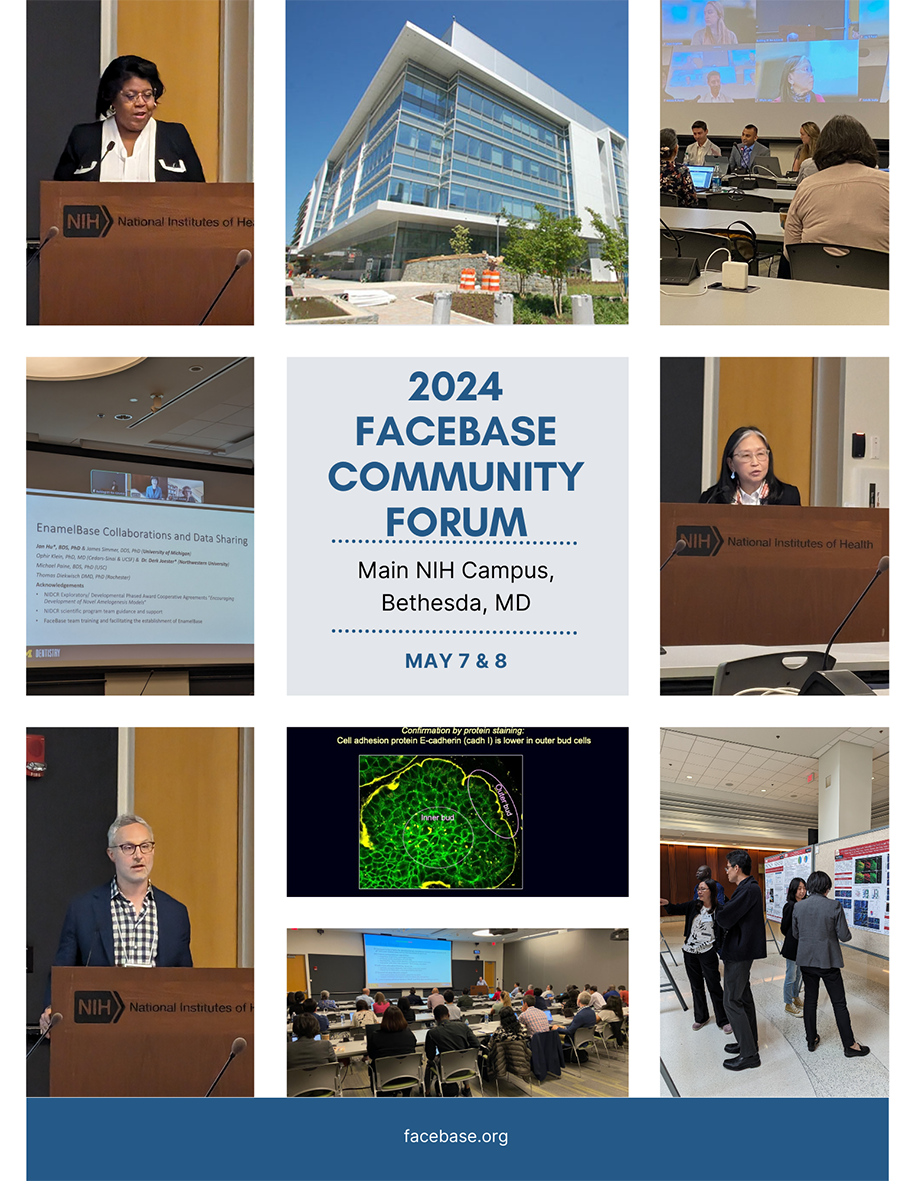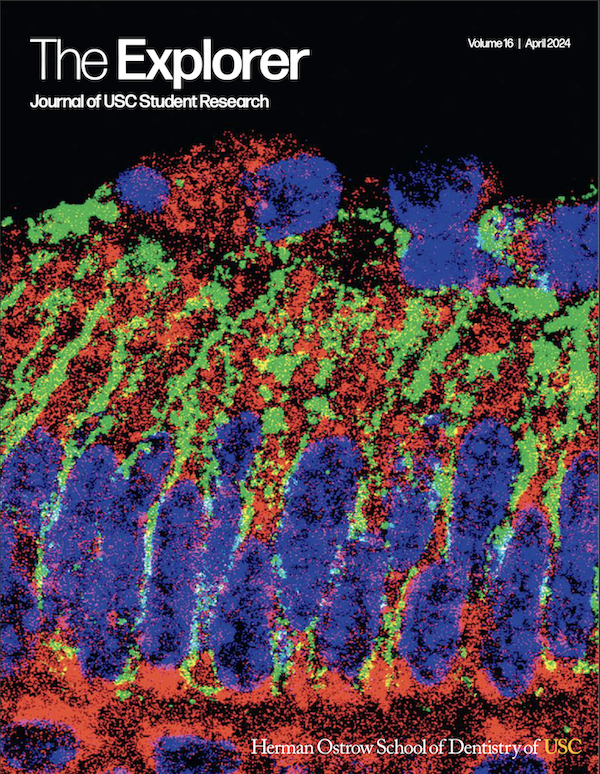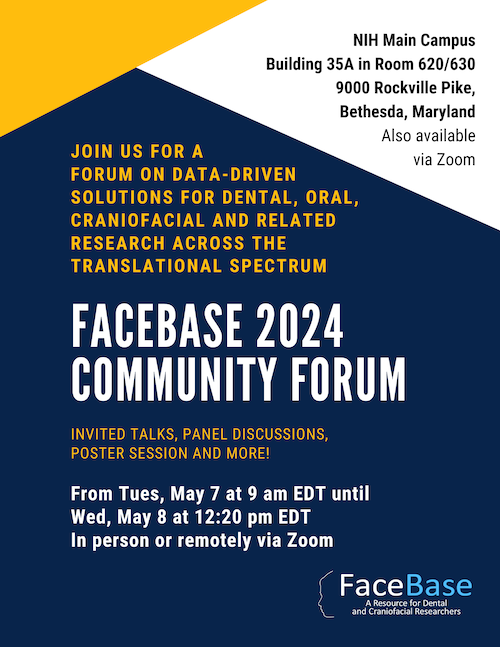News & Events
Upcoming NIH Data Reuse Seminar Featuring FaceBase - Aug 9, 2024 (05 August 2024)
Members of the FaceBase team will be presenting at an upcoming NIH Data Reuse Seminar Series. This virtual seminar, titled “Data Sharing and Reuse Seminar: August 2024,” will focus on the importance of data sharing and reuse in advancing scientific research.
Data Sharing and Reuse Seminar Details:
Date: August 9, 2024
Time: 12:00 pm Eastern / 9:00 am Pacific
Speakers: Drs. Rob Schuler (ISI USC) and Jifan Feng (CCMB USC)
Location: Virtual (via Zoom)
Registration Link: Visit the event page to register and receive the Zoom link

Drs. Robert Schuler, Ph.D. and Jifan Feng, Ph.D.
This seminar will be given in two parts:
Part 1: Introduction to FaceBase (Dr. Schuler) and Part 2: Examples of FaceBase Data Reuse in DOC Research (Dr. Feng).
We encourage all members of the FaceBase community to attend and participate in this informative session.
For more information about the seminar and speakers and the link to register, please visit the NIH Data Reuse Seminar Series webpage.
NIH Data Reuse Seminar Series Info
This entire series is open to the general public and it recurs every second Friday of each month. The presentations are also recorded and previous seminar talks are accessible via their website (https://datascience.nih.gov/nih-data-sharing-and-reuse-seminar-series).
We look forward to your participation!
FaceBase Virtual Bootcamp: Users and Data Submitters (01 July 2024)

FaceBase is hosting a virtual bootcamp tailored for both users and data contributors, whether you’re a seasoned user of FaceBase or looking to contribute data for the first time.
🗓 Date: Tuesday, August 27th
Highlights:
- Get a tour of the the updated website and documentation site.
- Discover new and updated features designed to enhance your data exploration experience.
- Become familiar with the data submission process.
- Learn how to fill out the updated Data Management Sharing (DMS) plans for sharing on FaceBase.
- Ask questions directly from FaceBase staff about data you’re looking for or data you want to contribute.
For more information, please view the event page:
Inquiries: Please direct any questions to help@facebase.org.
Summary and Public Materials from the 2024 FaceBase Forum (18 June 2024)
The 2024 FaceBase Annual Community Forum, held on May 7 & 8 at the main NIH campus in Bethesda, MD, highlighted the strategic alignment between FaceBase and NIDCR data management and sharing strategies, celebrated significant achievements in data diversity, and outlined plans to facilitate the reuse of scientific data, including electronic health records (EHR). The Forum showcased impactful case studies on cleft lip/palate and craniosynostosis, emphasized ethical data sharing practices, and explored the benefits of data reuse and collaborations.
This gathering was a truly inspiring event that sparked ideas and dialogue and helped us learn more and more about this community we serve. Below are links to the publicly available slides and webcasts for the presentations, panels and posters. This year, we are also sharing a Summary Report that tells the story of this special event:
- Guide to Slides, Webcasts and Posters - FaceBase 2024 Community Forum (Public Edition)
- Bios of Presenters and Moderators
- Summary Report of the FaceBase 2024 Community Forum
Below is a list of the Poster Session presenters along with links to their posters and abstracts where available:
| Characterization of the craniosynostosis phenotype in Loeys-Dietz Syndrome (Unavailable for preview) |
Bikash Lamichhane NIH/NIDCR bikash.lamichhane@nih.gov |
| FaceBase: Data Sharing Community for Dental, Oral, and Craniofacial Research Abstract Poster PDF |
Alejandro Bugacov University of Southern California bugacov@isi.edu |
| Investigation of Mesenchymal Lineage Diversification During Embryonic Palatal Development (Unavailable for preview) |
Jifan Feng University of Southern California jifanfen@usc.edu |
| P53-PDGF Signaling Regulates Vasculatures To Control The Heterogeneity Of MSCs Abstract Poster PDF |
Tingwei Guo University of Southern California tingweig@usc.edu |
| Spatial Multiomics Reveal Pax9-dependent Wnt Signaling Fine Tunes Palatal Osteogenesis Abstract Poster PDF |
Jeremie Oliver Piña NIH/NICHD jeremie.pina@nih.gov |
| Training Underrepresented Students on Craniofacial Research at USC Abstract Poster PDF |
Thach-Vu Ho University of Southern California thachvuh@usc.edu |
We thank all those who participated and made this event so special!

FaceBase posters at Ostrow School of Dentistry Research Day (08 April 2024)

Congratulations to the Herman Ostrow School of Dentistry’s 2024 Research Day which happened on April 3rd! Ostrow, part of the University of Southern California, is No. 3 on the list of top-funded U.S. dental institutions by the National Institute of Dental and Craniofacial Research (NIDCR). In addition to showcasing groundbreaking research from Ostrow students, FaceBase was spotlighted in two posters presented at this special annual event. You can find the abstracts, in addition to high quality profiles and interviews, in their yearly publication The Explorer:
View 2024’s edition of the Explorer.
The following FaceBase posters were presented (see page 59):
Poster 51 - FaceBase 3: Craniofacial Development and Dysmorphol- ogy Data Management and Integration Authors: Ishmael Howard, Thach-Vu Ho, Robert Schuler, Cristina Williams, Bridget Sam- uels, Yuan Yuan, Joseph Hacia, Yang Chai, and Carl Kesselman
Poster 54 - Training Students on Craniofacial Development Using FaceBase MicroCT Datasets Authors: Thach-Vu Ho, Janet Sanchez
Registration is open for the FaceBase Forum on Tues & Wed, May 7 & 8! (27 March 2024)
The FaceBase Hub is thrilled to announce that registration is open for the 4th Annual FaceBase Community Forum right on the NIH campus!
This year, we’ve expanded our event to one-and-a-half days of enriching discussions, groundbreaking advancements, and invaluable networking opportunities in Bethesda, MD. FaceBase is an NIDCR funded repository and it’s a primary repository for dental, oral, and craniofacial data.
Who should attend? This meeting is relevant for investigators, clinicians and trainees who conduct foundational, translational, and clinical research of dental, oral, craniofacial, as well as anatomically and biologically relevant diseases and conditions.
Visit our event page for more details about the exciting happenings at this year’s FaceBase Community Forum and to register today!

